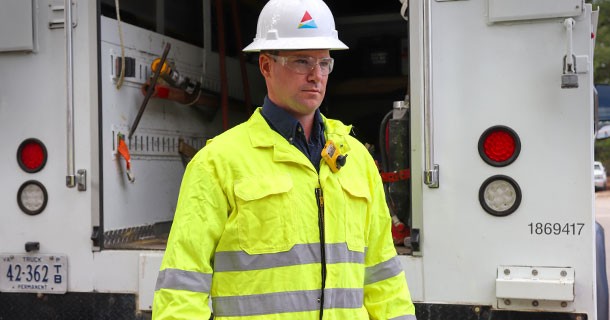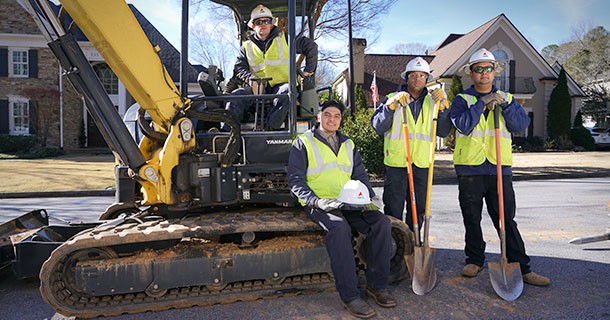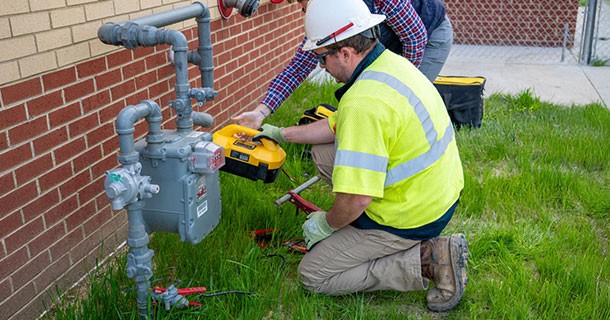Safety
Our highest priority is, and always will be, ensuring the safety of our employees and everyone we come into contact with – including the people we work with and the people we serve.
Safety is No. 1 value for our customers, communities and employees. We believe every customer deserves peace of mind that we'll be there to keep their homes warm, businesses running and families safe.
Because natural gas is colorless and odorless, we've added a chemical odorant called mercaptan that makes natural gas smell like rotten eggs. This distinctive scent allows you to smell potential leaks quickly and take steps to stay safe. If you smell that stench in the air, make sure you do the following:
Be extra-careful when dealing with sewer blockages. Mistakes can lead to a rare, yet hazardous condition that could lead to potentially deadly leaks. Utilities use a trenchless technology called horizontal directional drilling (or directional boring) to pull cables, conduits, and pipes underground. This method works well for several reasons:
Protect your natural gas appliances and/or equipment from damage with these tips:
Homeowners and contractors alike must follow these safe digging guidelines:

Scammers will disguise themselves as Southern Company Gas employees. We will never call you and request personal or payment information over the phone. When in doubt, hang up and contact your natural gas company's customer support team directly.
Your energy choices affect your bill, your comfort and the environment.
Here are a few ways to reduce your natural gas consumption:






Natural gas detectors may be installed by homeowners for an additional safeguard to detect leaks.

Clean, safe, reliable, affordable natural gas.

The lives of our employees, customers and communities.

In innovative solutions, offering choice, convenience and more.